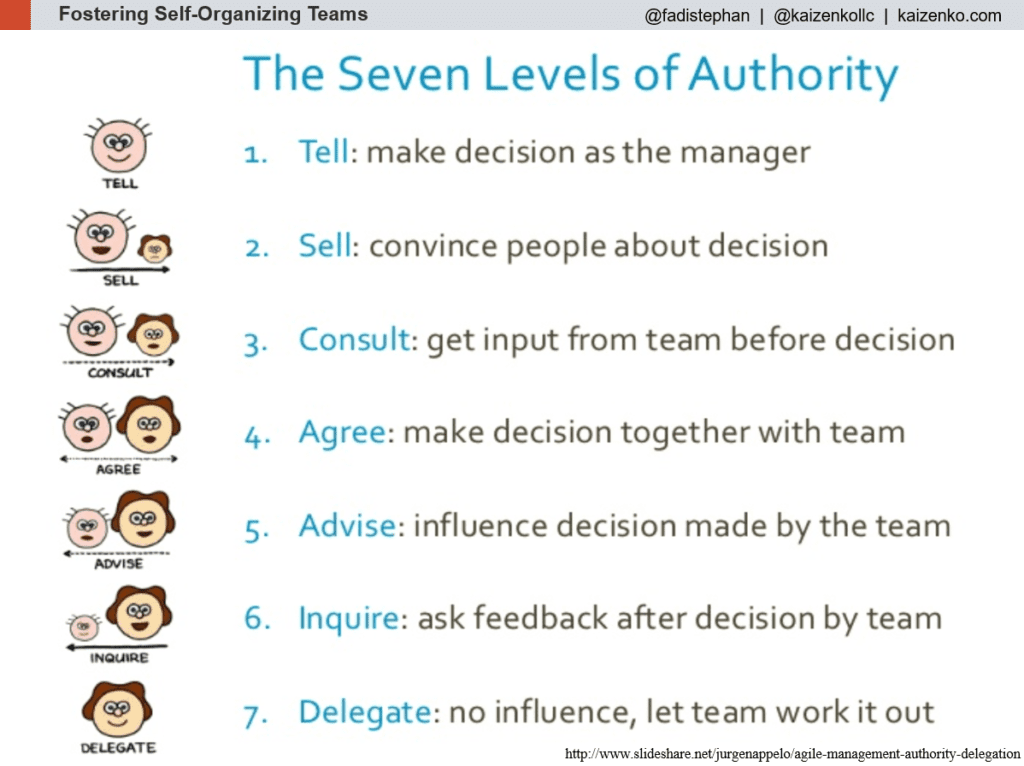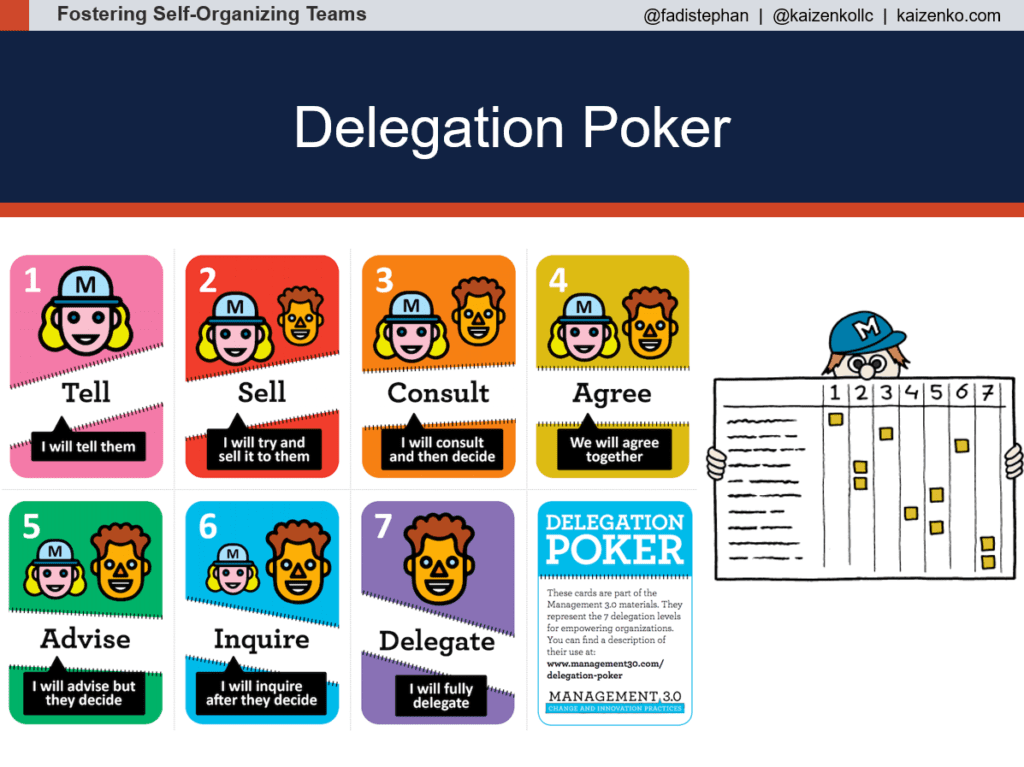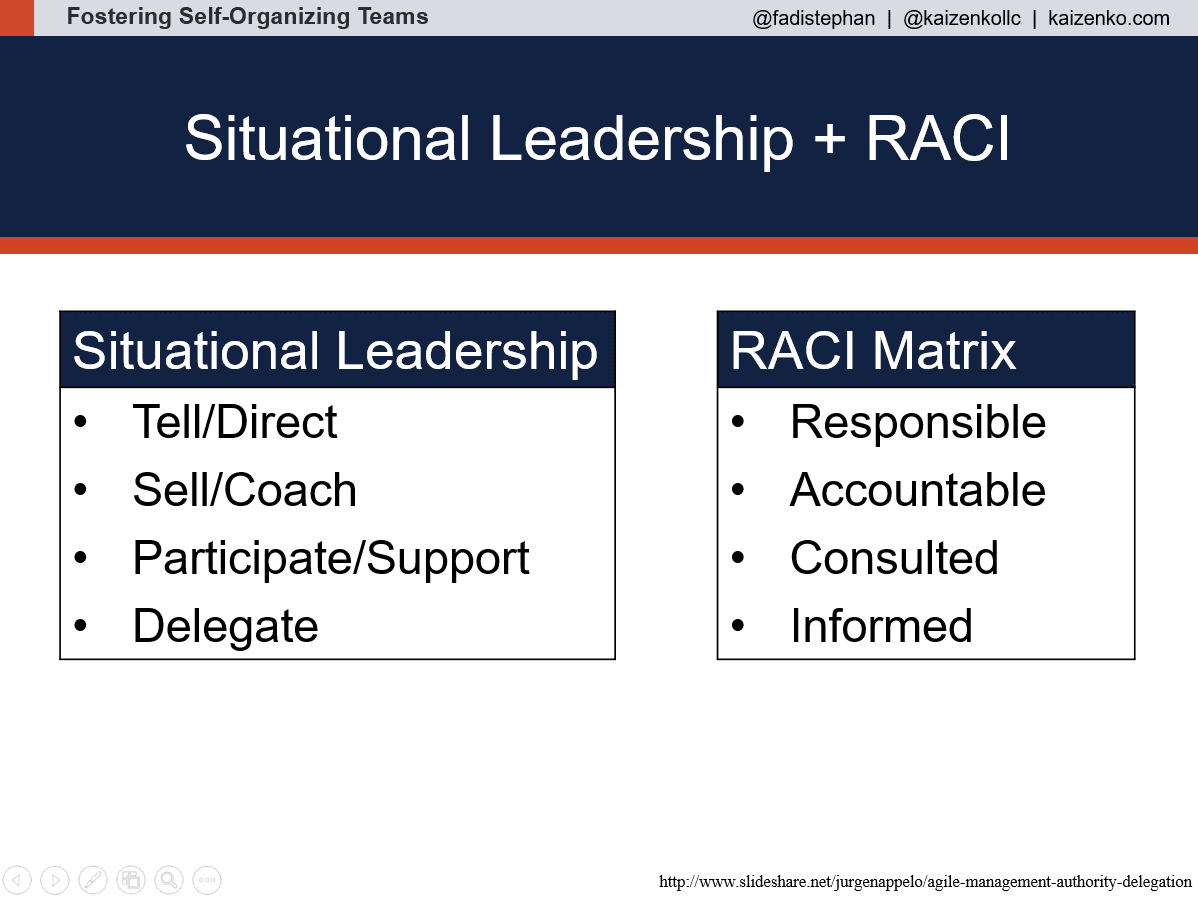We’ve seen how individuals acquire skills; how teams go through different development stages; how leaders need to adjust their leadership style based on the skills of their followers and the stage of their team to establish the necessary attributes to foster a high performing self-organizing team.
A good tool to use to help in fostering this is a Delegation Board as introduced by Jurgen Appelo in his book Management 3.0. Jurgen combines situational leadership with the RACI Matrix and based on that he defines 7 levels of Authority.
The 7 levels are:
- Tell: I make a decision as a manager
- Sell: I convince people about the decision I’m about to make
- Consult: I get input from the team before I make a decision
- Agree: I work with the team to make a decision together
- Advise: I provide feedback and influence decisions made by the team
- Inquire: I ask for feedback after a decision is made by the team
- Delegate: I’m just informed. I have no influence. The team decides and works it out.

The idea here is to use these levels to clarify the bounded authority that teams have based on the constraints that they are working under and their current stage of development with the ultimate goal of trying to push everything to level 7 ‘delegating’ for a high functioning self-organizing team. For clarity and transparency on the team’s authority, a delegation board is created as an information radiator to visualize key decision areas and delegation levels. All types of key decisions are listed on the board along with how far authority is delegated in that area (1-7). This way the team knows when things are up to them and when it’s not. The board models the creation of boundaries and the balancing act of authorization. This however is not static and needs to be regularly revisited and updated as the team matures.
Jurgen also introduces a game called Delegation Poker to drive home the idea of delegating decisions and tasks and get the conversation started on who should do what. Find out more here.

Learn more about Delegation Poker in the Building High Performing Teams Workshop.
Also check out the complete Fostering Self-organizing Teams series:
- What is a Self-organizing Team?
- Scrum Magic! Do Scrum – Become Hype-productive!
- 3 Models for Skills Acquisition
- Shu Ha Ri
- The Dreyfus Model of Skills Acquisition
- Situational Leadership
- Tuckman’s Stages of Group Development
- Drexler/Sibbet Team Performance Model
- The ScrumMaster’s Role is Fostering a High Performing Self-Organizing Team
- 7 Attributes of a Self-Organizing Team
- Delegation Board for Fostering a Self-Organizing Team
- The ScrumMaster’s Progressive Delegation Responsibility
- Fostering Self-Organizing Teams Presentation
